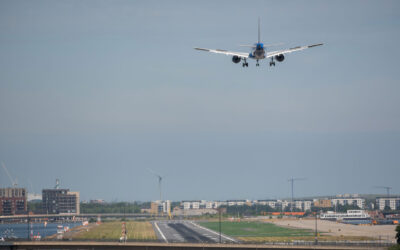The World of Corporate Sports Travel can be Complex
Getting athletes to an international tournament or a board member to a sports conference at the opposite end of the country involves an almost dizzying array of moving parts.
With so much logistical information to process, it is easy to overlook one of the most important parts of any successful sports travel programme – the part where you save money. But cutting costs isn’t as straightforward as trawling the web for last-minute flight deals. As a travel management company with years of specialist sports travel expertise, our consultants at Gray Dawes Sports are well-versed in the tips and tricks needed to secure the savings that will make a real difference to your budget.
In this article, we look deeper at 4 of the best tactics for cutting sports travel costs. You might be surprised at some of the ways you can save money.

#1- Book as a Team
It might sound simple, but booking your travel as a group can save you some serious money. Some airlines allow a travel booker to pool the luggage allowance across an entire team.
This is particularly useful when you consider how much equipment sports teams usually travel with – extra kit, physio beds, medical devices, and more. In short, by consolidating the extra kilograms of baggage into one group travel booking, individual travellers don’t have to pay extra for bringing more bags.
These savings aren’t trivial either as costs associated with excess baggage can be incredibly high. One of our clients had built an itinerary that required so much excess baggage that it cost in the region of £20,000. Your TMC should help you work out excess baggage over individual allowances, whether it can be consolidated into a group booking, and then clear it all at the same time as booking seats.

#2- Book Seats On Flights The Moment They Go On Sale
As the well-known proverb goes: “the early bird catches the worm”. This is especially true when it comes to Sports travel and booking flights – the earlier you secure your seats, the more likely you are to save money.
Most airlines list seats for sale 11 months prior to the scheduled flight. If possible, ensure that your travellers and/or teams are confirmed for travel a year in advance so that when the seats go on sale you are in a position to swoop in and get the early deals.
This is where a TMC can really add value. Most airlines (with the exception of low-cost carriers) will let TMCs hold seats for a period of time by paying a small deposit. Via this method, travel bookers do not need to confirm final passenger numbers or worry about submitting passenger names until a month in advance in many cases. Even after submitting names, a TMC like Gray Dawes can generally change them free of charge before the tickets are issued.
Essentially it doesn’t matter if you haven’t chosen your team; with the help of a TMC you can still book the flights!
Here’s approximately what you can save when booking your travel at least 90 days in advance:
%
Savings on Domestic Flights
%
Savings on European Flights
%
Savings on International Flights

#3- Submit Your Calendar of Events to Your TMC
Your sporting calendar is usually very predictable. Tournaments are scheduled and venues are booked years in advance, alongside all manner of sporting conferences, events, and meets that fill the seasons of sport.
A good TMC with expertise in sports travel will ask you to send a copy of your sporting calendar so that they can assess your year(s) ahead and plan accordingly. This information is invaluable. It not only helps consultants to secure fares early (and more cheaply), it allows them to thoroughly analyse the location, lock down any on-the-ground logistics, and book accommodation long before it sells out.
For British Swimming, one of our clients, coordinating calendars with our team of travel experts is one of the first things they do before the start of every season. This calendar allows us to see exactly where the swimmers need to be throughout the year, gives us the chance to understand their training and tournament schedule, and leaves us with time to ensure staff and athletes arrive at their destinations in good time and in the best possible shape.

#4 – Don’t Overlook the Importance of Defining Your Travel Budget
Take time to think more deeply about your travel budget and how it fits in with your objectives, not just for your organisation, but for your athletes and/or team. Ensure that it covers all aspects of the trip so that you aren’t tripped up by unexpected costs. Think about things such as:
- The costs involved in sustainable travel options.
- The price of ground transportation at the destination.
- How much travellers might need for food and drink.
Your TMC should be able to help you plan out your travel budget. They will also recommend and help you secure any financial support your athletes and staff might be entitled to, including considerations for meals, transportation, and incidentals.
Related Articles
Inside the Business Travel Show Europe 2025
Held in the huge conference halls of ExCeL London, the Business Travel Show Europe 2025 was a sparkling celebration of the innovation within the industry, and we at Gray Dawes were proud to be at the beating heart of it all. In this article, we take you behind the scenes of the show, reflect on a few eye-opening days, and share how Gray Dawes continues to lead the way with our Always On approach to delivering High Touch, High Tech, and High Content service at every stage of a business trip.
Onwards and Upwards with ITA Airways
ITA Airways, Italy’s flagship carrier, has expanded significantly since we last spoke with them. They now operate as far east as Tokyo and as far west as San Francisco. In this article, we chat to ITA Airways about their integration with Lufthansa Group, their commitment to sustainable travel, their Volare points program, and much more.
8 Top Hacks for Travel Managers
In today’s fast-paced corporate world, travel managers play a crucial role in ensuring seamless, cold-effective, and stress-free journeys. Balancing budgets, schedules, and traveller satisfaction is no easy task; however, with the correct strategies, it becomes a lot simpler. Whether you’re looking to streamline bookings, reduce expenses, or enhance traveller experience, these top 10 travel hacks are designed specifically for travel managers ready to take their game to the next level.
LET’S TALK
Fill in the form below and we’ll get back to you as soon as we can.




